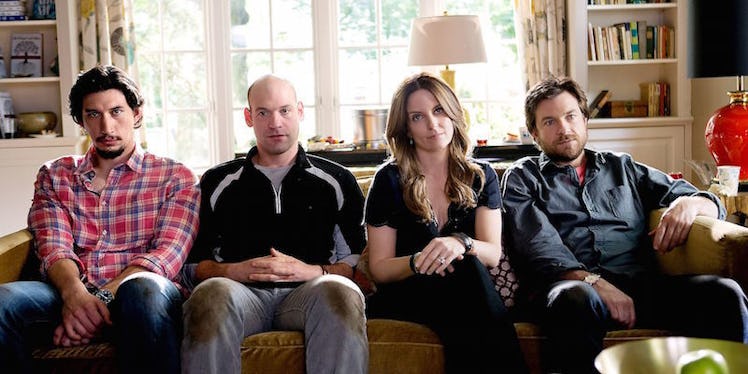
Here's How Your Birth Order Can End Up Predicting Your Entire Life
Put down the self-help books.
You don't have to worry about "finding yourself" anymore because as it turns out, your birth order already has your whole personality worked out for you.
Research by Dr. Kevin Leman, a psychologist and author of "The Birth Order Book: Why You Are the Way You Are," says there are distinct differences in the characteristics of children and adults depending on their birth order.
So sit tight because I'm about to lay 'em on you:
Oldest child
Parents of first-born children tend to be overly neurotic, since they're inexperienced.
They're like a server on his or her first restaurant shift: constantly hovering over the table, asking if everything is OK. They're annoying, and they create annoying people as a result.
I can say this because I'm the first-born daughter of five children, but science can now back up the fact that first-born children tend to grow into controlling perfectionists.
They're also said to be conscientious, reliable achievers.
As children, they live for the adoration of the adults around them, and sometimes they act as miniature adults themselves.
As adults, these traits tend to stick around. First-born children grow up to be adults who want to be the best at what they do.
They enter new situations with caution, and only when they feel comfortable with their new surroundings will they come fully out of their shell, sure to leave an impression on the people around them.
Their desire to succeed isn't fueled by competition, so much as a sincere desire for the adoration that comes from being the best at what they do.
Middle child
Middle children's roles are not as defined as the oldest child or the youngest child, so they tend to seek approval from their peer group, since parental attention is focused more on the oldest and youngest offspring.
They can, however, be difficult to pin down. While they seek approval from their peers, they still model themselves somewhat off of the first-born child's characteristics.
In general, middle children are somewhat rebellious people-pleasers with large social circles who thrive on friendships. They can also be the peacemakers in the family (which can frustrate the oldest and youngest children when looking for an ally).
Even as adults, they can demonstrate that slightly rebellious streak.
However, being the people-pleasing type, they will either cause a commotion about any criticisms you've made of them, or they'll simply ignore your wishes (as though they haven't heard them) and do whatever they want.
They cannot handle being told what to do.
Youngest children
As parents' attitudes grow increasingly laid-back, so do the free-spirited characteristics of their children.
These "babies of the family" (as they are often referred to well into adulthood) tend to be manipulative, self-centered, fun-loving and outgoing attention-seekers.
These traits, much like their "baby of the family" name, carry way into adulthood.
They have a tendency to wrestle away the spotlight from others if need be, and they have a very positive outlook on their lives due to having such a spontaneous attitude.
My youngest sister, for instance, is the most fun-loving member of my family, although she's totally reckless.
To be specific, she once got thrown out of prep school for getting her arm stuck in a vending machine. In other words, she's fucking awesome.
Also, don't judge her.
She had to make herself memorable; she was the youngest of five. If she didn't do badass stuff like this, she probably would've been completely forgotten.
Only children
They're just so focused on being model human beings that it can be impossibly difficult for them to just let go and have a great time.
Throughout their lives, only children tend to be mature, diligent and conscientious perfectionists.
Lucky for them, these tend to be great leadership qualities that force them into scenarios in which they have to work with others.
Overall, though, only children are wet-blanket people.
Sure, that's just my opinion, and maybe it comes from a deep sense of jealousy about how much easier my life could've been without siblings (or some buried resentment against my boyfriend, who is an only child), but have you ever met an only child you liked?
They do kind of suck.
Just saying.